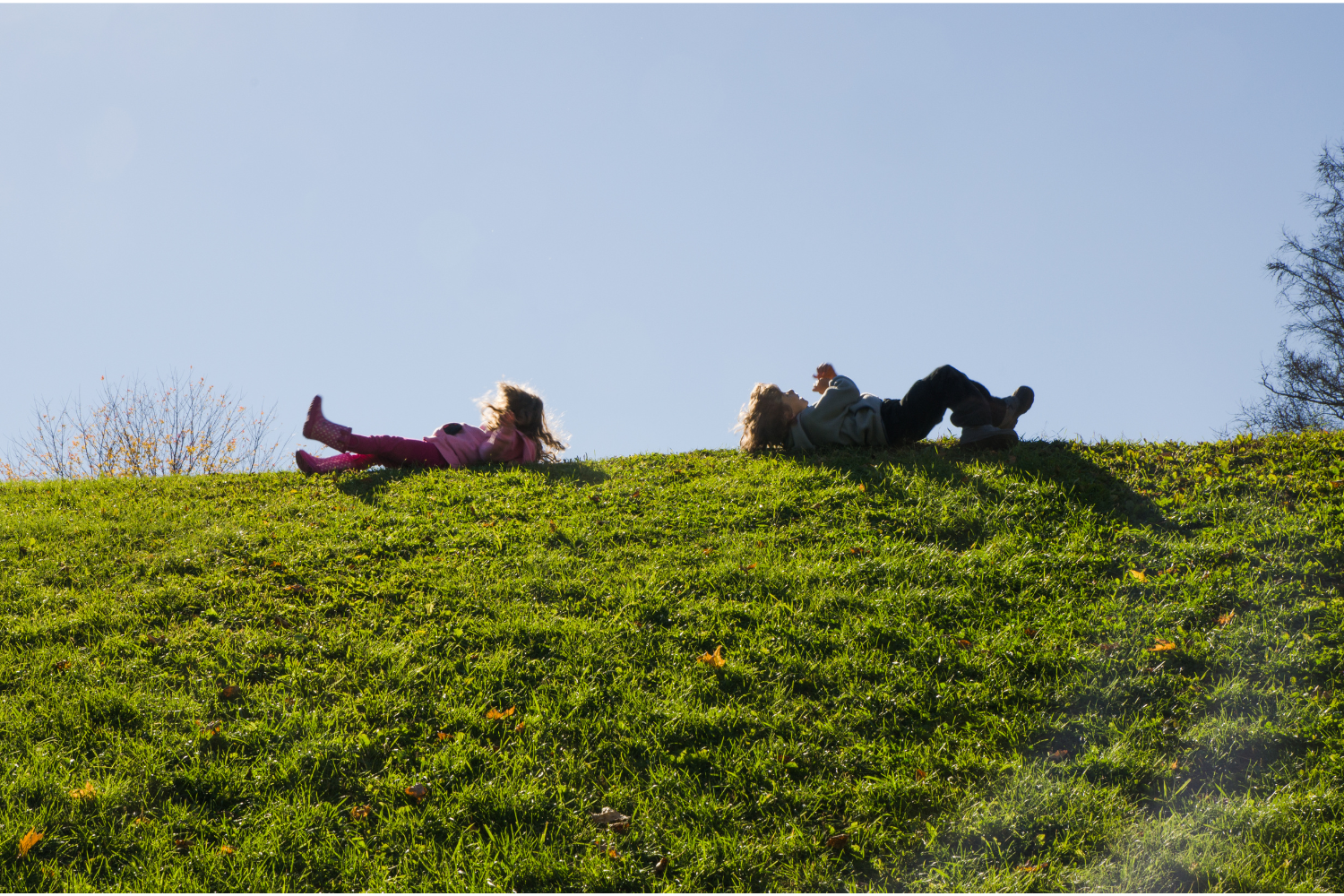Sometimes we parents can be very irrational.
We aren’t afraid to let our children do things that may be damaging to their development like play video games or watch TV; but then our fear gets in the way of letting them do things that are good for their development like taking risks and having adventures of their own making.
Children need to be in the natural world taking risks, getting dirty, and having fun. Without taking risks, they don’t learn the limitations of their bodies and may be more prone to accidents later, nor will they develop their courage muscles.
Courage is an essential quality because we don’t want our kids to be paralyzed from fear and unable to live life to its fullest.
With that in mind, here are three things that you must let your children do no matter how much it makes you panic:
1) Climb a Tree
Children have a natural sense of what they can do and what they can't do. Serious accidents are uncommon, but in the helicopter parenting world, parents are afraid (moms especially) to let their children do things because they "might" get hurt.
Let them get hurt! A few bumps and scrapes won't kill them. They even survive broken bones.
We grew up in Northern California amongst the redwood trees, the most towering trees in the world. We would climb trees until we got tired of climbing or too scared to climb any higher, which was usually about 30 feet off the ground (an educated guess looking back many years!).
Yes, it was scary, but it was also a thrill.
“The woods were my Ritalin. Nature calmed me, focused me, and yet excited my senses.”
We felt like conquerors; not of land, but of our fear. We felt a sense of accomplishment to have climbed so high, and it gave us a sense of confidence, excitement, and adventure.
Not everyone has such tall trees available to them, but I have since witnessed mothers who were afraid to let their four-year-old climb a thick tree branch that was two feet off the ground.
When we say things like, "Stop, that's too dangerous!" we interfere with our child’s developmental process and experience of living with joy.
Once I saw a child, with a pure look of excitement in her eyes, attempt to do something daring only to have her parent tell her to stop.
I literally watched the light of her excitement as it got snuffed.
If something is too dangerous–as in serious injury or death could result–you probably want to intervene, but beyond that let children do what children do best.
2) Make Mud Pies
Children love to play in the mud. They don't think in constructs of clean or dirty, but only of fun, exciting, and entertaining. And playing in the mud is nothing if it isn’t fun, exciting, and entertaining.
So, indulge them.
“Time in nature is not leisure time; it’s an essential investment in our chidlren’s health (and also, by the way, in our own).”
When my children were young, we had a backyard with a large section of dirt in it. They spent hours there covering themselves in mud to their heart's content. Mud was matted in their hair, dripping from their ears, and embedded in their clothes by the time they were finished.
They made mud pies and had make-believe meals, they examined the mud as they closed their fists around it and watched it squish through their fingers, and they had lots of mud fights.
Yes, I had a huge mess to clean up, but it was always more amusing to me than anything else.
Mud is a perfect medium for developing your children’s senses, imagination, and motor skills. it's a great natural resource that will keep them occupied for hours.
Eat Mud
I know this might be over the top for many of you, but unless you live in an area where they spray pesticides or you live in a high traffic zone, then let your children eat mud. They won't eat much, but they do like to taste it.
I remember eating mud when I was young. It tasted like clay, but I don't think I did more than just taste it. The point is that there was no one hovering over me telling me to stop.
And if an adult had been nearby, they wouldn’t have been worried about it either. Tasting mud was a part of childhood - all children try it at some point. Who doesn't want to know what a little bit of mud tastes like?
“Nature is often overlooked as a healing balm for the emotional hardships in a child’s life.”
According to modern science, immersing themselves in mud boosters their immune systems. We even have an International Mud Day on June 29th now. This holiday must be in retaliation for the hyper-sterile environment that children in the post-modern world are raised in.
According to the "Hygiene Hypothesis," the sterile environment is putting children at risk for allergies, asthma, and autoimmune diseases as they get older.
Their reasoning is that the immune system develops by exposure to bacteria, viruses, and parasites, and in the modernly-sterile environment children's immune systems are not being exposed to them enough, and therefore, they’re immune systems aren't as strong as they should be.
It’s a theory, and not one I personally subscribe to, but it’s important to understand that exposure to germs strengthens our immunity. Ironically, as much as we try to prevent childhood diseases, many of these diseases are safer to contract as children than as an adult.
3) Rolling Down Hills
In my childhood, we used to climb to the top of a hill and then see who could roll down the fastest. What fun we had.
Do children still roll down hills today?!
I sympathize with any parent who does not want their child to ruin his clothes, especially if you are on a tight budget. And that’s why kids need clothes they can get dirty in.
While it's fine to have an outfit or two for when the occasion calls, the day-to-day dress of a child should not be designer clothes but rough and tumble clothes.
And one last thing, remember that a few bumps, and bruises never killed anyone. Children take pride in their bumps and bruises especially the ones that require some cleaning and bandaging.
They're a sign of the battles fought on the playground of life.
Don’t miss our free download, Ten Books Every Well-Educated Child Should Read.
Teach your child to read before sending him to school! Learn more about Elizabeth's unique course, How to Teach Your Child to Read and Raise a Child Who Loves to Read.
For parents of children under age seven who would like to prepare their child for social and academic success, please begin with Elizabeth’s singular online course, Raise Your Child to Thrive in Life and Excel in Learning.
When you join the Smart Homeschooler Academy online course for parents, Elizabeth will make homeschooling manageable for you. She’ll guide you in helping your kids reach their intellectual potential and developing good character.
As a homeschooler, you will feel confident, calm, and motivated knowing you have the tools and support you need to homeschool successfully.
Elizabeth Y. Hanson is a homeschooling thought-leader and the founder of Smart Homeschooler.
As an Educator, Homeschool Emerita, Writer, and Love and Leadership Certified Parenting Coach, Elizabeth has 21+ years of experience working in education.
Developing a comprehensive understanding of how to raise and educate a child, she devotes her time to helping parents get it right.
Elizabeth is available for one-on-one consultations as needed.
"I know Elizabeth Y. Hanson as a remarkably intelligent, highly sensitive woman with a moral nature and deep insight into differences between schooling and education. Elizabeth's mastery of current educational difficulties is a testimony to her comprehensive understanding of the competing worlds of schooling and education. She has a good heart and a good head. What more can I say?”
—John Taylor Gatto Distinguished educator, public speaker, and best-selling author of Dumbing Us Down: The Hidden Curriculum of Compulsory Schooling



















